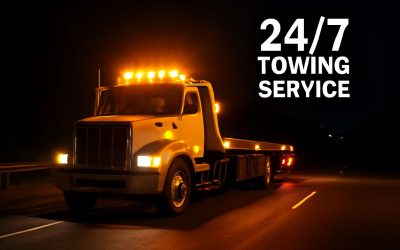
When your car breaks down or you get into a car accident, you will likely need the services of a towing truck. They are essential for many different reasons and can be a lifesaver. However, before you call a towing company to help you out, it’s important that you understand the differences between different types of trucks and why they are necessary.
A towing truck is a type of vehicle used to haul towed cars and other vehicles. These vehicles are used by a variety of companies and government agencies. They come in a number of different styles and can be found in almost every city.
Tow truck drivers often work overnight, which can be a challenge when you need to get home at a reasonable hour. They also work in all kinds of weather conditions, including cold weather and snowy weather.
There are a few main types of tow trucks, and each one is designed for different purposes. Here are some of the most common ones you might encounter:
Conventional Tow Trucks
A conventional tow truck is a towing device that uses chains to tow cars and other vehicles. These chains can scratch paint or damage the drive train of a car. Because of this, they aren’t as popular as some other types of tow trucks.
Wheel Lift Tow Trucks
These tow trucks use hydraulics instead of chains to tow cars and other vehicles. They are usually smaller than traditional tow trucks and require less overhead clearance. They’re a good choice for drivers who aren’t interested in getting their car stuck on the side of the road or who are driving heavy trucks.
Integrated Tow Trucks
These trucks combine the features of a boom and wheel lift tow truck in one vehicle. This makes it possible for tow truck operators to control the towed vehicles and their movement from their seat.
This type of truck can be extremely useful if you need to haul vehicles with special payloads, such as military equipment or industrial machinery. It’s also great for relocating large amounts of freight.
You can learn how to become a tow truck driver by pursuing a degree or certificate in the field, taking on-the-job training and working with an experienced tow truck operator as an apprentice. Once you have enough experience under your belt, it’s time to apply for a licensing and certification program.
Some states have strict regulations regarding the qualifications that you need to become a tow truck driver. Some of these requirements include having a valid driver’s license, a clean driving record and excellent vision for both short and long distances.
Other requirements include strong physical and mental strength, the ability to lift and move heavy equipment and a good sense of direction. You should also have excellent hearing to safely navigate through traffic, which can be difficult at times.
When you’re a tow truck driver, it’s crucial to keep your mind and body healthy. Avoid alcohol, drugs and other substances that can impair your focus on the road and cause drowsiness. It’s also helpful to wear a seatbelt at all times, whether you’re driving or not. It’s also a good idea to be familiar with traffic laws in your area so that you can be aware of any speed limits or other road rules.



0 Comments